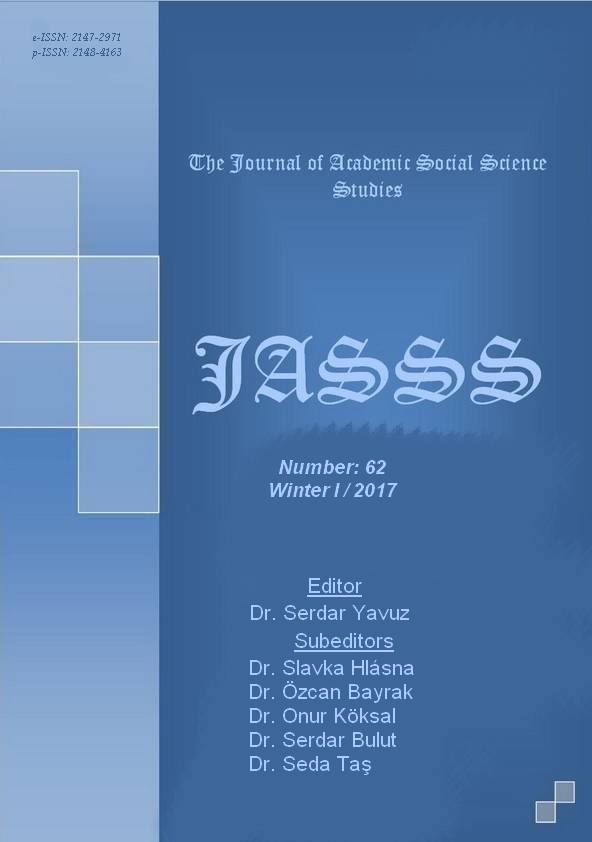Author :
Abstract
Bu makalede bilgi felsefesi meselelerinden biri olan bilginin kaynağına ilişkin sezginin mahiyeti, Gazali özelinde ele alınmıştır. Sezgi, felsefe tarihinde batıdan doğuya birçok düşünürün felsefesinde kendine yer bulabilmiş bir kavramdır. Bu nedenle sezgiye İslam filozoflarından 20. yüzyıl batı filozoflarına değin birçok isimde rastlamak mümkündür. Ancak yaygınlığına karşın sezgi kavramı ile anlatılmak istenen açık değildir. Bu durumun somut örneklerinden biri de Gazali’dir. İslam felsefesinde sezgiciliğin en önemli temsilcilerinden sayılan Gazali, sezgi kavramının barındırdığı bulanıklık nedeniyle araştırmacılar tarafından kolaylıkla Batılı filozoflarla karşılaştırılmaktadır. Hads ve intuition kavramları ile karşılaştırdığımız sezgi kavramının anlamı, bilginin doğrudan, aracısız olarak kavranmasıdır. Bununla birlikte sezginin akli, tecrübi, mistik ve estetik türleri bulunmaktadır. Bu sezgi türlerini örneklemek ve böylece Gazali sezgiciliğinin farklılığını doğru tespit etmek için İbn-i Sina ve Descartes’taki sezgi türlerini inceledik. İbn-i Sina ve Descartes’daki sezgi-akıl ilişkisinin ardından Gazali sezgiciliğinin dayandığı akıl eleştirisini değerlendirdik. Gazali’nin akıl eleştirisinden vardığı sezgiciliğinin kaynağı Allah’tır ve Gazali kesin bilgiye Allah’ın yardımı ile ulaştığını söylemektedir. Gazali’de farklı konumlarda karşımıza çıkan sezgi, duyu ve akıl bilgisinin üstünde yer almasına rağmen sınırlıdır. Dolayısıyla Gazali felsefesindeki sezgi kaynağı, konumu ve sınırı ile birlikte bir bütün teşkil etmektedir. Bu bütünsel yapı dikkate alınmadan Gazali’deki sezginin diğer filozofların sezgi anlayışlarıyla karşılaştırılması oldukça sorunludur. Böylesi karşılaştırmaların ne derece doğru olduğunu tartışmaya açtığımız makalemizde sezgi kavramının anlamı, türleri, Gazali’deki mahiyeti incelenmiş ve Gazali sezgiciliğinin ayrıcalıklı yanları saptanmaya çalışılmıştır.
Keywords
Abstract
In this article, one of the problems of epistemology, the meaning of intuiton as a source of knowledge, examined especially in al-Ghazali’s philosophy. Intuition is a concept that has found its place in many philosopher’s philosophy from the west to the east in the history of philosophy. Therefore it is possible to find this concept in many names, from Islamic philosophers to 20th. century philosophers. Despite its prevalence, however, it is not clear what is meant by the concept of intuition. One of the examples of this situation is al-Ghazali. al-Ghazali, considered one of the most important representatives of intuitionism in Islamic philosophy, is easily compared with western philosophers by researchers because of the blurring of the concept of intuition. The meaning of the concept of intuition that we compare with the concept of hads is that knowledge is grasped directly. Along with that there are rational, experimental, mystical and aesthetic types of intuition. We have studies the types of intuition in Avicenna and Descartes in order to illustrate these types of intuitions and thus to correctly determine the difference of al-Ghazali’s intuitionism. After studied the relation between intuition and knowledge in Avicenna and Descartes, we discussed al-Ghazali’s critics to mind. The source of the intuitionism that al-Ghazali’s gets from his criticss of mind, is God and al-Ghzali says that certain knowledge comes with the help of God. The intuition that come across in different positions in al-Ghazali is limited even though it is above the knowledge of senses and knowledge of reason. Therefore the intuition in al-Ghazali’s philosophy constitutes a whole together with its source, position and limit. Without considering this whole structure, it is very problematic to compare the intuition of al-Ghazali with the other philosopher’s intuitionism. In the article, which I discussed how such comparisons are true, I examined the meaning, kinds and importance of intuition in al-Ghazali and tried to identify the privileged aspects of al-Ghazali’s intuitionism.





